This article was co-authored by wikiHow Staff. Our trained team of editors and researchers validate articles for accuracy and comprehensiveness. wikiHow's Content Management Team carefully monitors the work from our editorial staff to ensure that each article is backed by trusted research and meets our high quality standards.
There are 7 references cited in this article, which can be found at the bottom of the page.
This article has been viewed 21,813 times.
Learn more...
Teaching can be rewarding, but there are many years of preparation that go into entering this profession. You’ll have to do post-graduate work and get on-the-job experience before you can become a fully-qualified instructor. You'll also need to pass additional exams with C-grades or higher in many cases. Becoming a teacher takes dedication and perseverance, but it can be done.
Steps
Earning Qualified Teacher Status (QTS) or Teaching Qualification (TQ)
-
1Apply for a Bachelors of Education if seeking a primary school job. A BEd is a 3-year degree that mainly applies for aspiring primary school teachers. Primary education includes Key Stages 1 and 2, as defined by the UK government (grades 1-2 and 3-6, respectively).[1] .
- If you want to become a nursery teacher, you may be able to get a job without having a bachelor's degree, but you'll still need to be certified to work with young children.
-
2Apply for a Bachelors in your preferred subject field for a secondary education job. If secondary education (Key Stages 3 and 4, or grades 7-9 and 10-11) is your focus, you’ll want to earn a degree that is appropriate for the subject matter you want to teach before moving on to graduate-level work.
- For example, if you want to teach secondary school science, a biology major would be a wise choice.
Advertisement -
3Earn a Post Graduate Certificate in Education (PGCE). This certification will allow you to teach at all levels in the subject you earned your Bachelors in.[2] It typically takes one year to earn a PGCE.
- In Scotland, their equivalent of a PGCE is a PGDE (Post Graduate Diploma in Education).
-
4Pass all QTS (TQ in Scotland) exams. You must attain a C-grade or higher in the General Certificate of Secondary Education (GCSE) exams in math and English. The GCSE exams are administered online in a testing center and also include an oral “mental maths” exam.[3]
- Primary school teacher candidates must also take a GCSE exam in Science and earn a C-grade or higher.
- If you plan to teach in Wales, they require a B-grade or higher on these exams.
-
5Sign up for the Initial Teacher Training (ITT) program. The ITT program typically consists of three separate placements at three different schools of about 6-8 weeks each.[4] While you’re at a placement you’ll be asked to do all normal activities that a regular teacher does. The only difference is that a mentor, someone with years of teaching experience under their belt, will be there to help you along.
- The Scottish equivalent of ITT is ITE, or Initial Teacher Education.
-
6Register with the General Teaching Council for Scotland (GTCS) if planning to teach in Scotland. The GCTS operates independent of the UK government in establishing and reviewing education standards and training standards for teachers. All teachers in Scotland are legally required to register with the GCTS.[5]
- The Northern Ireland equivalent is the General Teaching Council for Northern Ireland. Being a member is mandatory if teaching in Northern Ireland.
Becoming a Fully-Qualified Teacher
-
1Prepare the necessary documents for a background check. Training providers will want to know your medical and criminal history. If you have a conviction on your record, employers may not want to hire you. Medical examiners will determine if you are fit to teach, subject to the rules outlined by the Equality Act.[6]
- Aspiring teachers in Scotland must enlist themselves in the Protecting Vulnerable Groups (PVG) Scheme. The PVG Scheme helps identify individuals who are forbidden from working with young children.
-
2Pass a professional skills test for numeracy and literacy (England only). The skills test must be taken regardless of which subject you plan to teach. The computerized exam measures your ability to process data and information that you’ll encounter on the job.[7]
-
3Take a Subject Knowledge Enhancement (SKE) course, if necessary. Some training providers will require you to take an SKE if the subject of your degree is not similar enough to subject matter you’ll be teaching.[8] An SKE provides subject-specific teacher training.
-
4Get through your one-year induction period as a Newly-Qualified Teacher (NQT). Once placed in an appropriate venue, NQTs are monitored strictly with classroom observations and regular progress reviews. A school-appointed induction tutor will be there to help you along.[9]
- The induction period can be extended if the school headmaster deems it necessary.
- Failure to pass induction is not the end of the world. There are many private learning institutions in the UK that do not require statutory induction.
Developing Skills to Become a Successful Teacher
-
1Lend a sympathetic ear to your pupils in order to relate to them. Remember that you were once a student yourself. Try to be understanding of their issues, whether they're personal or work-related, and be patient when problems arise.
-
2Remain enthusiastic and confident at all times. Everyone has their good and bad days, but a teacher must remain engaged with their students even when fatigued or under the weather. Consistency is key in forming good teacher-student relationships.
-
3Develop organizational skills. Keep legible records of your student's grades on homework and tests to help yourself out before report card time. Formulate a lesson schedule and test schedule, whether it's on a weekly or monthly basis, and try to stick to it as much as possible.
- On a personal level, try to keep your work-space as neat as possible. Clip papers together or place them in folders. Keep materials like pens and markers in one spot and place them back where they go when you're done using them so they don't get lost.
-
4Learn how to teach subject matter in different ways. Falling into a routine will become boring to your students as well as yourself. Students learn in different ways, from memorizing by rote to working in groups, so make sure your lesson plans are dynamic.
Community Q&A
-
QuestionWhich universities can you apply to in England to obtain a Bachelor's degree to teach English or Biology?
 Kathy5421Community AnswerYou could try such universities as: the University of Warwick, Oxford Brookes University, and the University of Exeter.
Kathy5421Community AnswerYou could try such universities as: the University of Warwick, Oxford Brookes University, and the University of Exeter. -
QuestionI am already certified in Spanish French Latin teaching in Oregon. I have 40 years experience. Do I have to test? Who do I contact?
 Community AnswerYou can join any University to be a teacher. First,You need to get a appointment with the principal of the school. Then tell her about your education or your experience. You need to be prepared for the interview and the main test, which contains all things of your subject. You need to get a tleast half of the marks. You will join after some weeks after you interview or test.
Community AnswerYou can join any University to be a teacher. First,You need to get a appointment with the principal of the school. Then tell her about your education or your experience. You need to be prepared for the interview and the main test, which contains all things of your subject. You need to get a tleast half of the marks. You will join after some weeks after you interview or test. -
QuestionWhat can I do to be a mathematics teacher in England with a Masters in mathematics, teaching and 24 years of teaching experience in Portugal (Portuguese language)? And having an intermediate level 0?
 Community AnswerIf you want to become a mathematics teacher, first,you need to apply to a university. Then contact the principal of the school by visiting or simply write the name of the school. Then make an appointment. They will give you a interview or a test (mainly Interview). You have to be ready in everything about that subject. You have to score at least half of the marks to become a teacher.
Community AnswerIf you want to become a mathematics teacher, first,you need to apply to a university. Then contact the principal of the school by visiting or simply write the name of the school. Then make an appointment. They will give you a interview or a test (mainly Interview). You have to be ready in everything about that subject. You have to score at least half of the marks to become a teacher.
References
- ↑ https://www.prospects.ac.uk/jobs-and-work-experience/job-sectors/teacher-training-and-education/how-to-become-a-teacher
- ↑ https://www.quora.com/How-can-I-become-a-teacher-in-the-UK
- ↑ https://www.quora.com/How-can-I-become-a-teacher-in-the-UK
- ↑ https://www.quora.com/How-can-I-become-a-teacher-in-the-UK
- ↑ https://www.ucas.com/postgraduate/teacher-training/train-teach-scotland
- ↑ https://www.teachers.org.uk/files/health-enquiries-prior-to-employment_2013.doc
- ↑ http://sta.education.gov.uk/
- ↑ https://targetjobs.co.uk/career-sectors/teaching-and-education/advice/468072-what-qualifications-do-you-need-to-become-a-teacher
- ↑ https://assets.publishing.service.gov.uk/government/uploads/system/uploads/attachment_data/file/696428/Statutory_Induction_Guidance_2018.pdf
About This Article
Becoming a teacher requires a lot of dedication, but you can start a rewarding career as an instructor by passing the necessary exams and getting on-the-job experience. To earn Qualified Teacher Status or a Teaching Qualification, apply for a Bachelors of Education, which will prepare you for teaching primary school. If you aspire to get a secondary education job, get a degree in the subject matter you want to teach, like biology or literature. After you graduate, earn a Post Graduate Certificate in Education and get a C-grade or higher in all your QTS exams. In addition to passing the proper tests, you’ll need to finish a full year as a Newly-Qualified Teacher, where you will be monitored and tutored. For more help, like how to develop the skills needed to be a successful teacher, read on.


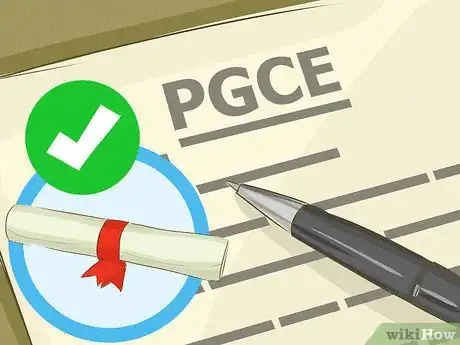
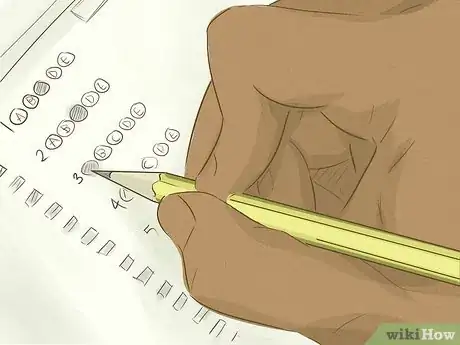
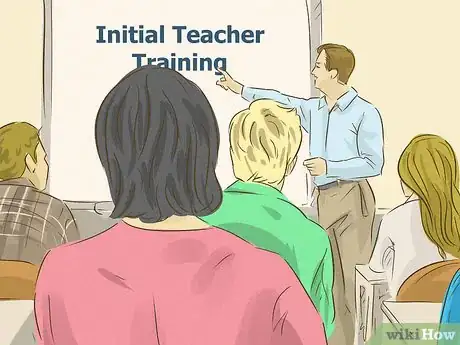
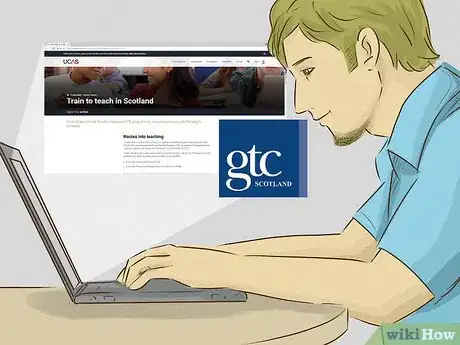



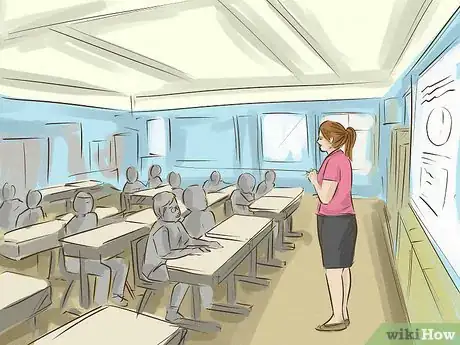

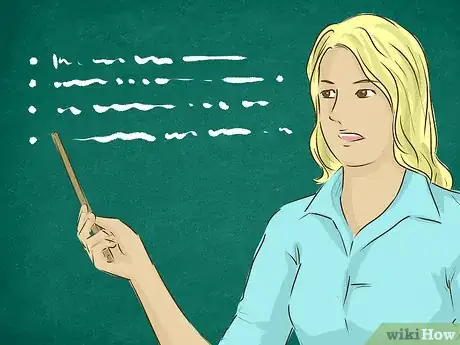
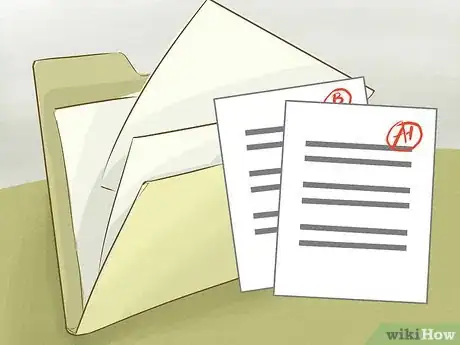







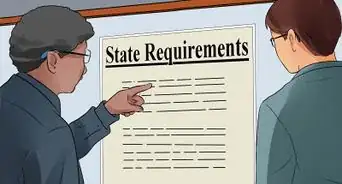

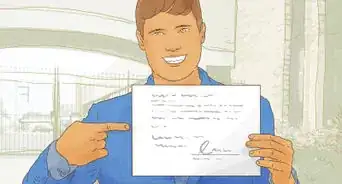



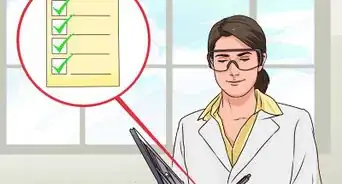
-Step-13.webp)













































